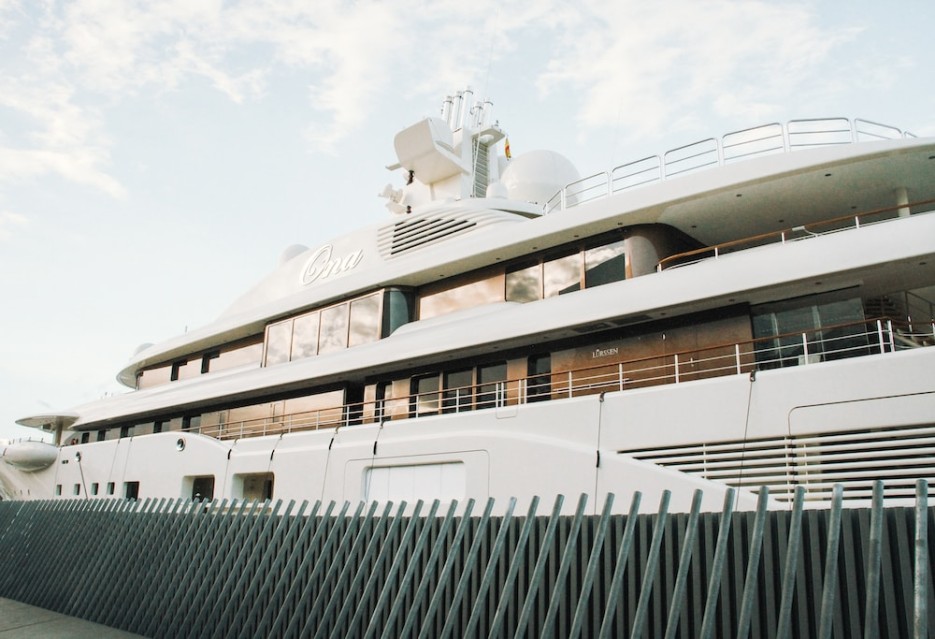
The yachting industry is often associated with luxury and excess, but it is also becoming increasingly aware of its environmental impact. In recent years, there has been a growing movement towards more sustainable yachting practices, and a number of companies and organisations are now leading the way in the development of new green technologies and solutions.
One of the biggest challenges facing the yachting industry is its reliance on fossil fuels. Diesel engines are the standard power source for most yachts, and they produce significant emissions of greenhouse gases and other pollutants. However, a number of companies are now developing electric and hybrid yachts that can help to reduce the industry’s environmental impact.
One of the most notable examples of an electric yacht is the Sunreef 80 Eco, which was launched in 2021. The Sunreef 80 Eco is a luxury catamaran that is powered by solar panels and batteries. It has a range of up to 100 nautical miles on electric power alone, and it can also be equipped with a diesel generator for extended cruises.
Another company that is developing electric yachts is Silent Yachts. Silent Yachts offers a range of electric catamarans and powerboats, ranging in size from 44 feet to 100 feet. Silent Yachts’ yachts are all powered by solar panels and batteries, and they can offer days or even weeks of cruising on electric power alone.
In addition to electric yachts, a number of companies are also developing hybrid yachts that combine electric power with diesel engines. This allows for longer cruising ranges than electric yachts alone, while still reducing emissions.
Another key area where the yachting industry is becoming more sustainable is in the use of materials. Traditionally, yachts have been built using materials such as fiberglass and carbon fiber, which are both energy-intensive to produce and difficult to recycle. However, a number of companies are now developing new sustainable materials for yacht construction, such as bio-based composites and recycled materials.
The move towards sustainability was a subject of discussion at this year’s Cannes and Monaco Yacht shows. With the industry keen on making improvements in all areas of construction, momentum is growing for a greener future. On the sidelines of this year’s Monaco Yacht Show, CEO of the Professional Yachting Association Christophe Bourillon commented, “It is important that we communicate to the world the reality of yachting. Not only the economic benefits and jobs created – but on the fact that yachting is evolving. For instance, we are seeing more yachts being built to do exploration work. We must also communicate on what we – the industry – are doing to make yachting cleaner, with due consideration for sustainable development principles.”
One example of a company that is using sustainable materials in yacht construction is Nautor’s Swan. Nautor’s Swan is a Finnish yacht builder that is known for its high-quality sailing yachts. Nautor’s Swan is now using bio-based composites in the construction of its yachts, which reduces the environmental impact of the manufacturing process.
Another example of a company that is using sustainable materials in yacht construction is Green Yachts. Green Yachts is a Dutch shipyard that specialises in the construction of sustainable yachts. Green Yachts’ yachts are built using recycled materials and bio-based composites, and they are powered by electric and hybrid propulsion systems.
In addition to the development of new technologies and materials, the yachting industry is also taking steps to reduce its environmental impact through operational changes. For example, many yacht owners are now choosing to charter their yachts instead of buying them outright. This reduces the number of yachts that are built each year, and it also means that yachts are used more efficiently.
Another operational change that is helping to reduce the environmental impact of the yachting industry is the use of more sustainable fuels. For example, a number of yacht owners are now switching to biofuels, such as biodiesel and ethanol. Biofuels produce fewer emissions than traditional fossil fuels, and they can also help to reduce the industry’s reliance on foreign oil.
The yachting industry is still in the early stages of its transition to a more sustainable future. However, the progress that has been made in recent years is encouraging. With the continued development of new technologies and materials, along with the adoption of more sustainable practices, the yachting industry can play a leading role in the fight against climate change.




